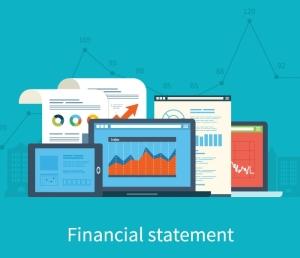All states other than Alaska, Delaware, Montana, New Hampshire, and Oregon impose a sales tax on the purchase of various goods and services. Some states choose to suspend temporarily the sales tax on certain items at certain times of the year, in hopes of boosting the economy. Although there's some disagreement as to the effectiveness of these events as policy, knowing when they take place, what products are affected, and how to prepare can help small business owners make these special holidays truly worthy of celebration.
What are sales tax holidays?
Sales tax holidays are the periods in the year when sales tax is not imposed on certain items specified by a state. State sales tax holidays are created to help consumers with certain needed purchases, such as emergency supplies for upcoming severe weather, or clothing and books for students going back to school after summer break.
How do sales tax holidays work?
States typically announce early in the year whether they will have one or more sales tax holidays. The announcement specifies when they will be held (usually for a period of a few days) and which items are going to be exempt.
The 4 different types of sales tax holidays
State sales tax holidays help consumers buy needed items for certain purchases at specified times of the year. Some states offer a single holiday each year, while a few have multiple holidays, each for a different purpose.
- Back to school. This is the most popular sales tax holiday. More than a dozen states lift the sales tax on back-to-school items, such as clothing (up to a set price point), backpacks, computers (up to a set price point), and school supplies. The holiday typically occurs late in the summer so students can get ready to return to school in the fall.
- Energy Star appliance. A few states suspend the sales tax on Energy Star products up to a set price point (e.g., as high as $6,000 in Texas for certain appliances in 2019). This holiday is meant to encourage consumers to upgrade to more energy-efficient appliances, such as air conditioners and washing machines. The holiday may run concurrent with the back-to-school holiday or at another specified time of the year.
- Second Amendment. Mississippi is the only state to offer a sales tax holiday on firearms, ammunition, and hunting supplies. It occurs at the end of August, which is before the fall hunting season.
- Severe-weather preparedness. Some states encourage consumers through sales tax holidays to purchase items for protection during severe weather. For example, Alabama and Florida offer a holiday for hurricane preparedness by lifting sales tax on generators, batteries, and certain other supplies.
Massachusetts has a general sales tax holiday that’s not tied to a particular incentive. It's limited to items costing no more than $2,500, and the exemption does not apply to certain items, such as alcoholic beverages, boats and motor vehicles, and gas.
States that currently participate in sales tax holidays
For 2019, 16 states offered sales tax holidays:
|
Alabama
|
Iowa
|
Missouri
|
South Carolina
|
|
Arkansas
|
Maryland
|
New Mexico
|
Tennessee
|
|
Connecticut
|
Massachusetts
|
Ohio
|
Texas
|
|
Florida
|
Mississippi
|
Oklahoma
|
Virginia
|
States that currently do not participate in sales tax holidays
The majority of states with sales tax do not have any sales tax holiday in 2019. These states are:
|
Arizona
|
Indiana
|
Nebraska
|
Rhode Island
|
|
California
|
Kansas
|
Nevada
|
South Dakota
|
|
Colorado
|
Kentucky
|
New Jersey
|
Utah
|
|
Georgia
|
Louisiana
|
New York
|
Vermont
|
|
Hawaii
|
Maine
|
North Carolina
|
Washington
|
|
Idaho
|
Michigan
|
North Dakota
|
West Virginia
|
|
Illinois
|
Minnesota
|
Pennsylvania
|
Wisconsin
|
As previously noted, Alaska, Delaware, Montana, New Hampshire, and Oregon have no state sales tax. Also, there was no sales tax holiday in the District of Columbia.
How to maximize sales tax holidays for your small business
Small businesses can take advantage of sales tax holidays to promote sales of specific items. Advertising items you offer that are subject to a sales tax exemption attracts customers. Some businesses even extend the holiday by paying the sales tax for consumers of their goods for a few days before or after the state's sales tax holiday, assuming this is permissible in the state.
Even if your business doesn't sell items subject to a sales tax holiday, you may be able to benefit. For example, if you run a restaurant, more consumers out shopping may mean more hungry people looking for a place to eat afterward.
If you choose to try to take advantage of state sales tax holidays, taking certain steps could favorably position your business for success and avoid running afoul of state laws. And bear in mind that you may be in need of some tax services on the back end.
1. Find out what items are exempt
A sales tax holiday is not a blanket suspension of the tax on all goods and services within the state. Each location specifies the items that become exempt from sales tax during the holiday period. The exemption depends on the type of sales tax holiday. For example, certain clothing and computers are exempt during back-to-school sales tax holidays, while energy-efficient dishwashers are exempt during Energy Star sales tax holidays.
And the amount of an exemption may be capped. For example, during the back-to-school sales tax holidays in 2019, clothing was exempt up to $100 in Iowa, but only $60 in Florida.
Also determine whether the sales tax holiday in your state applies to online and/or mail order purchases. In most locations, the sales tax holiday is applicable to these types of sales.
Check with your state revenue department to determine which items are exempt and any other rules you need to know.
2. Know how to record and report your sales tax holiday transactions
Your accounting system should adjust for the sales tax holiday. This will help you collect and remit the correct amount of sales tax to your state. Another option is to automate your sales tax activities using sales tax software, which can adjust for state sales tax holidays. If you are unsure about what to do, consult your tax adviser.
3. Be aware of advertising regulations during this period
While a sales tax holiday can boost your sales, it may be illegal to mention the tax savings in your promotions. Some, but not all, states prohibit any advertising that includes claims about sales tax relief. Check the laws in your state through your state revenue department on whether you're barred from stating or implying that some or all of the state sales tax is covered by you.
4. Make sure you have enough inventory
Once you determine which items are exempt during the sales tax holiday in your state, be prepared to have sufficient inventory to meet customer needs. As with any inventory purchases, you want to have enough on hand so you don't run out during the peak sales period (the sales tax holiday), but not so much that you have too much left over after the holiday ends.
5. Know how to deal with gift cards and discount codes during the tax holiday
Some sales are not immediate; they are made pursuant to gift cards, rain checks, or layaway sales. Determine the rules in your state regarding sales tax holidays with respect to these purchase arrangements. In Florida, for example, there's no sales tax relief on the purchase of the gift card. But if it's used to buy exempt items during the sales tax holiday, then the sales tax isn't imposed on what's purchased. If, during a sales tax holiday, you run out of exempt items and issue a rain check that's redeemed after the holiday ends, you must collect sales tax on the item or items; the exemption doesn't attach to the rain check.
However, sales made under a layaway plan can benefit from the sales tax holiday. As long as the sale is made during a sales tax holiday, the item is exempt even though a final payment is made after the holiday ends.
Some tax experts argue that a sales tax holiday is merely a way to shift the time when consumers buy what they need. Others say they can be a boon to small retailers. Regardless, if you live in a state where they take place, be sure to understand your tax obligations and plan ahead.










